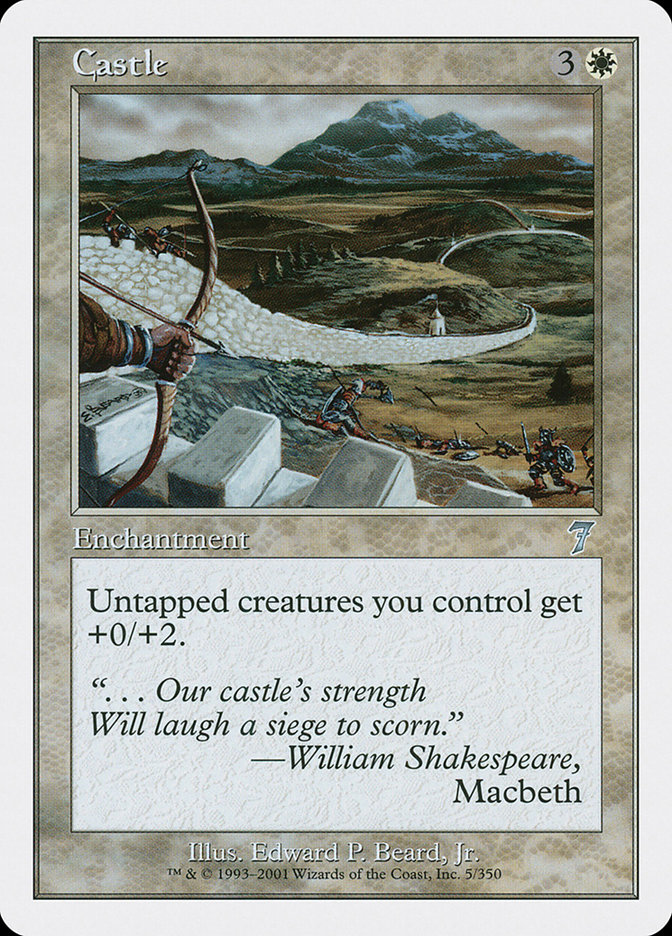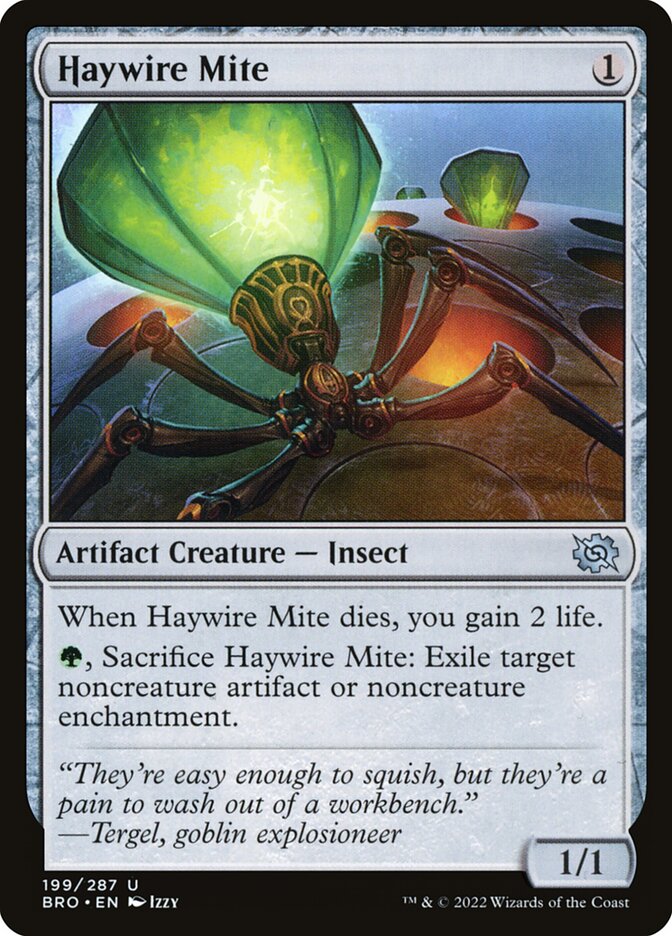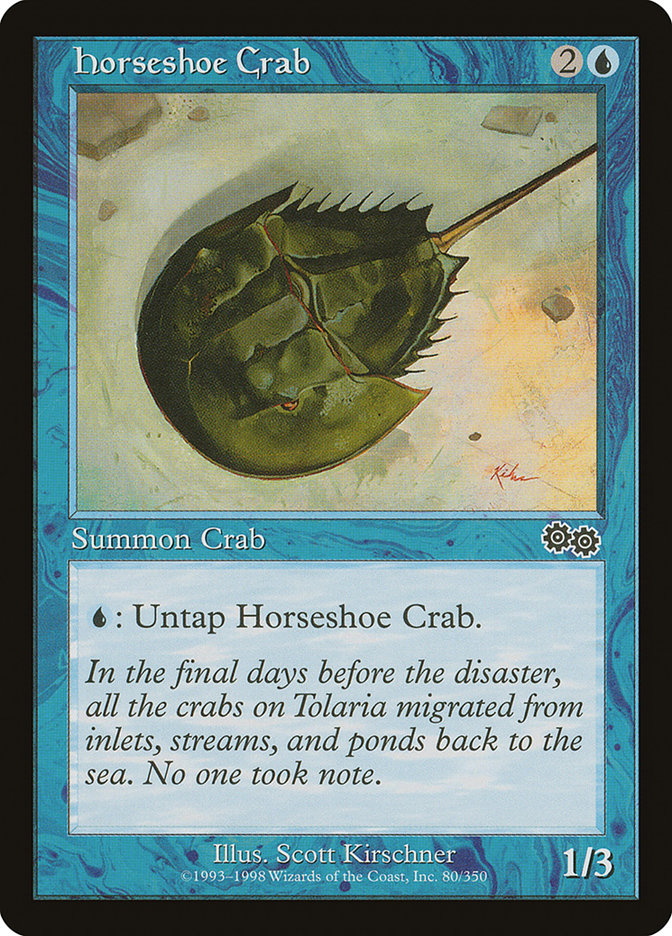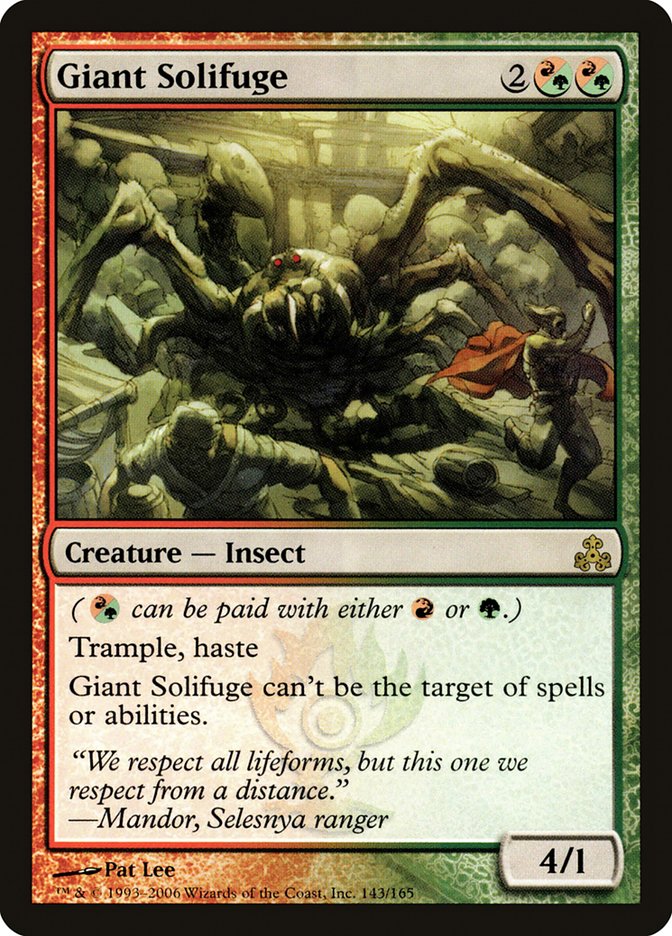Magic: the Gathering plays host to tropes and concepts belonging to so many niches of fandom. This spans from pop culture references and homages of media from generations past, to the coopting of entire fandoms through Universes Beyond, and to the long-past era of Magic's flavor text borrowing the words of the great writers of the past. If we treat Magic like a big-tent concept, there is something for everyone under its canopy, even if some can only live on in the flavor text printed on cards that came before the established worlds of Dominia took shape, before the idea of a multiverse of independent settings could be unified by connections between them and tropes could be lent to one another. I get lost in the prose of Shakespeare at least once a month while sifting through my older cards, prompting me to pull a modern translation off my bookshelf to dig into the context of these immortal quotes. I play and collect Magic for these moments where the boundaries of my hobbyism bleeds past the cards, where connections to a grander concept take shape in the identity I've established through my passions.
 |
| Scryfall search for references and quotations to Shakespeare on Magic cards |
Enter Macbeth, Seyton, and Soldiers, with Drum and Colors
MACBETH
Hang out our banners on the outward walls.
The cry is still “They come!” Our castle’s strength
Will laugh a siege to scorn. Here let them lie
Till famine and the ague eat them up.
Were they not forced with those that should be
ours,
We might have met them dareful, beard to beard,
And beat them backward home.
A cry within of women.
What is that noise?
SEYTON
It is the cry of women, my good lord.He exits.
MACBETH
I have almost forgot the taste of fears.
The time has been my senses would have cooled
To hear a night-shriek, and my fell of hair
Would at a dismal treatise rouse and stir
As life were in ’t. I have supped full with horrors.
Direness, familiar to my slaughterous thoughts,
Cannot once start me.
There is more to a Magic card than the rules text that define it, the art that portrays it, the flavor that expounds it, or the lore that emboldens it. Castle is more than an enchantment that empowers the creatures you've chosen to hold back in the defensive. It's a representation of the physical presence of that defense, which Macbeth is all too aware of as the army of Malcolm lays in waiting in the Birnam Wood, ready to siege. Macbeth is confident in his force's strength but knows that no defense is safe from the probing terrors that infest our minds. Is this cry a foretelling of what's to come? Why does Malcom hide in the woods instead of begin his assault? The cry is that of a dying Lady Macbeth, and Malcolm does approach under the cover of the wood and leaves in disguise.
Enter Seyton.Macbeth was a fallible man, corrupted by desire and divine prospect. But he understood all too well that the strong defense of his castle can only protect from the externally known threats. The terrors of the mind will attack on a different angle, just as a disguise can supplant the best defensive. Castle is only a good defense if your opponent chooses to fight on your terms.
Wherefore was that cry?
SEYTON
The Queen, my lord, is dead.
MACBETH
She should have died hereafter.
There would have been a time for such a word.
Tomorrow and tomorrow and tomorrow
Creeps in this petty pace from day to day
To the last syllable of recorded time,
And all our yesterdays have lighted fools
The way to dusty death. Out, out, brief candle!
Life’s but a walking shadow, a poor player
That struts and frets his hour upon the stage
And then is heard no more. It is a tale
Told by an idiot, full of sound and fury,
Signifying nothing.
Magic can tell fantastic stories through the lore and use of flavor or personal stories through players in their competitive journeys. I live for these stories and the many shapes they come in. Of the many it can tell, I am most fond of how it interfaces with taxonomy, the field of study by which we categorize all of life into digestible units. Taxonomy can be a heated and contentious field at times that I've had the pleasure to study and contribute to for more than a decade. I've witnessed outbursts during presentations from rival scientist, so overtaken in their vehement disagreement that the decorum of the setting vanishes. Snarky remarks are inserted into the questions after a presentation as others opine, vying for the final word on a subject matter. I've had my share of whispered complaints, never so brazen to outlandishly attack another scientist over their work. Complaints about the use of certain calibrations in fossil data. At the exclusion of a certain species that would change the entire narrative of a study. Taxonomy ultimately boils down to telling a narrative about the tree of life in order to make sense of the endless eccentricities we find among the many branches of the tree.
 |
| Kunstformen der Natur (1904), plate 66: Arachnid |
There's a question of taxonomy I've been heavily invested in: what is an arachnid to the many scientists among Dominia? In our realm, arachnids include the many 8-legged animals like the well-known spiders and scorpions, the parasitic and peculiar mites and ticks, the common garden predator harvestmen or "daddy long legs", and so many others with different forms and dubious relations to one another. They're an old lineage of animals that have undergone major changes to their forms and the genetics that define those forms, making them a hard group to unite under a common set of characteristics without carving out many exceptions. But what opinions do the Thran have on arachnids?
The creature types that represent the arthropods, or the greater phylum that encompasses the crustaceans, arachnids, insects, millipedes, centipedes, and many other varied groupings of different inclusions and sizes, are represented only by a handful of creature types through Magic's history. Spiders, Scorpions, Mites, Insect, Crabs, Lobsters, and the humanoid lobster Homarids have been used to categorize all representatives of the arthropods with suspect placements of a considerable chunk of these creatures.
 |
| Creatures of each arthropod-related type released per year |
 |
| Percentage of creatures that are each arthropod-related type released per year |



No comments:
Post a Comment